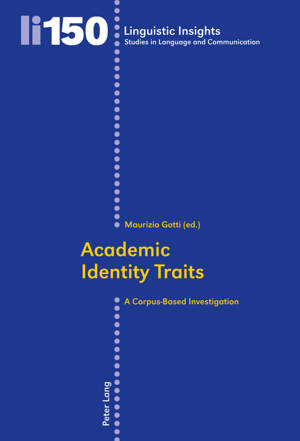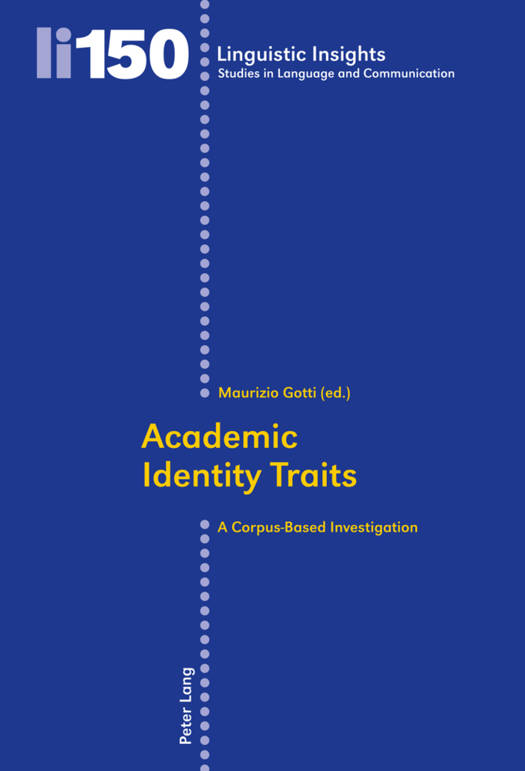
- Afhalen na 1 uur in een winkel met voorraad
- Gratis thuislevering in België vanaf € 30
- Ruim aanbod met 7 miljoen producten
- Afhalen na 1 uur in een winkel met voorraad
- Gratis thuislevering in België vanaf € 30
- Ruim aanbod met 7 miljoen producten
Zoeken
Academic Identity Traits
A Corpus-Based Investigation
€ 99,45
+ 198 punten
Omschrijving
This volume investigates identity traits in academic discourse. Its main purpose is to better understand how and to what extent language forms and functions are adapting to the globalisation of academic discourse. Key factors of verbal behaviour such as the affiliation of actors to one or more cultures have been found to interact, producing transversal identities that are independent of local traits, with a tendency to merge and hybridise in an intercultural sense. The volume consists of three main parts: The first deals with identity traits across languages and cultures, as the use of a given language affects the writing of a scholar, especially when it is not his/her native language. The second comprises investigations of identity features characterising specific disciplinary communities or marking a differentiation from other branches of knowledge. The third part of the volume deals with identity aspects emerging from genre and gender variation.
Specificaties
Betrokkenen
- Uitgeverij:
Inhoud
- Aantal bladzijden:
- 376
- Taal:
- Engels
- Reeks:
- Reeksnummer:
- nr. 150
Eigenschappen
- Productcode (EAN):
- 9783034311410
- Verschijningsdatum:
- 30/01/2012
- Uitvoering:
- Paperback
- Formaat:
- Trade paperback (VS)
- Afmetingen:
- 150 mm x 225 mm
- Gewicht:
- 519 g

Alleen bij Standaard Boekhandel
+ 198 punten op je klantenkaart van Standaard Boekhandel
Beoordelingen
We publiceren alleen reviews die voldoen aan de voorwaarden voor reviews. Bekijk onze voorwaarden voor reviews.










